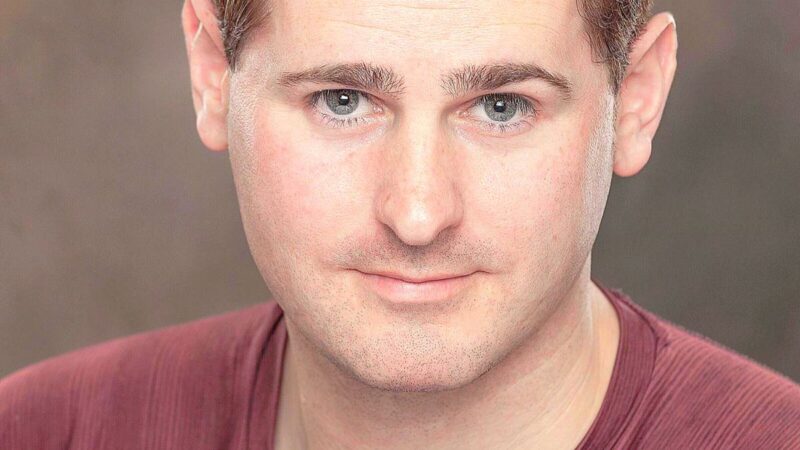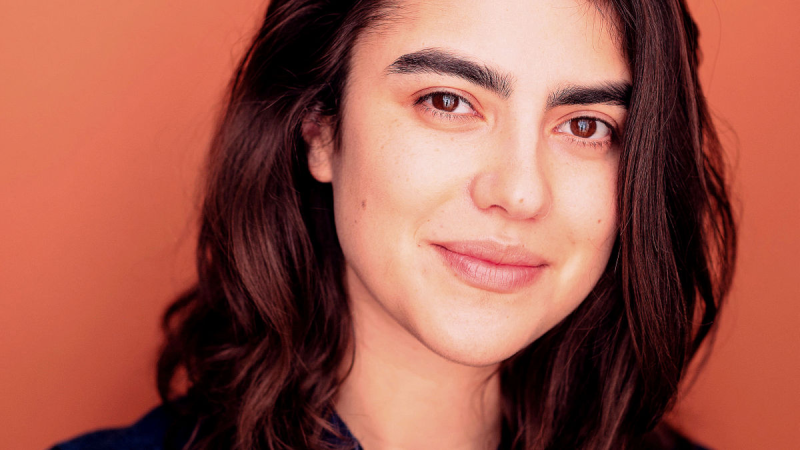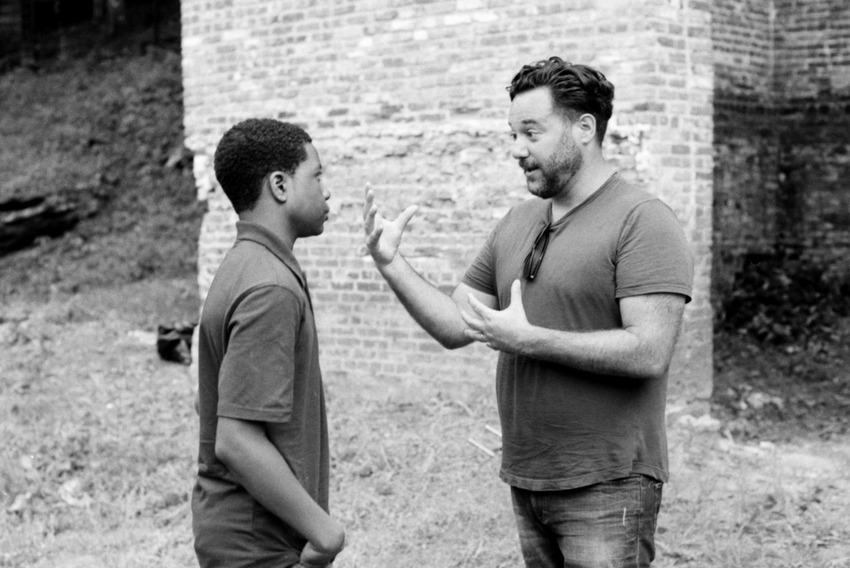
Richard Raymond is an award-winning British film director, who started his career at Pinewood Film Studios, working under Lord Richard Attenborough, Neil Jordan and Blake Edwards.
His short film, “Souls of Totality” won 12 International Film Festivals, including Best Grand Jury Award at Hollyshorts, Best Short Film of the Festival at Raindance, Best Film of the Festival at St. Louis and Most Popular Film at Rhode Island. Richard was also awarded a “Special Mention for Direction” at Edinburgh International Film Festival and Best Film of the Festival at New Renaissance, an Award previously only given to feature films.
We talk to him about his new short film A Million Eyes
indieactivity: What inspired you to direct this film?
Richard Raymond: When I read Curt Zacharias Jr’s script I felt a deep and personal connection to the story of a child discovering their artistic voice — and the importance that mentors play in young people’s lives, especially during the fragility of their artistic journeys. I understand what it was like to have a yearning for creative expression and how that can sometimes be alienating. I think all artists do, and I felt that a story like A Million Eyes — the maturation of an artist — had never really been told before. I had wanted to do something totally different and explore different ways of telling stories.
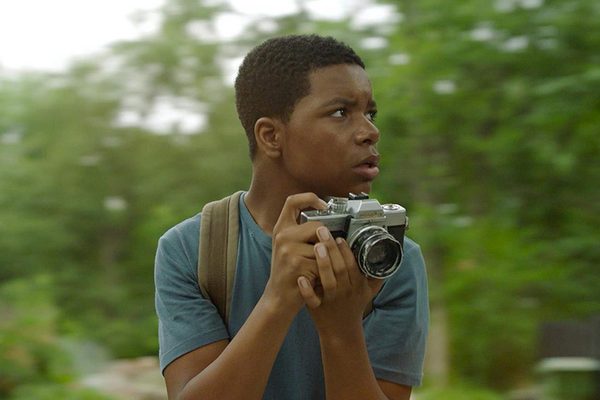
To make a film that was more patient, poetic and soulful. Something more intimate that focused on character over plot and left the audience with a little more contemplation. A Million Eyes opened a few of those doors for me and I saw it really clearly early on. I owe it all to producer Josh Reinhold who initially read the script on the Black List Lab and thought it was beautiful. He slipped it to me and we actually started to develop it together as a feature film. But I grew impatient and suggested to Josh that we ask Curt to rework the screenplay into a short, which we could put into production relatively quickly. I think the key element for me personally is that urge to just keep collaborating and creating, to tell important stories and engage an audience in a way they’re not expecting.
indieactivity: Did you chose the script with a cast in mind?
Richard Raymond: We focus on creating the best characters we can and then look at the casting landscape and see what feels right. With this film I was blessed that my wife, Nousha, who is a producer on the film, was friends with Katie Lowes. We met over lunch and I thought the world of her. She was the first to be cast and gave such an understated and subtle performance. She’s a gift to any director, who seems to make everything she does look effortless. Most people recognise Katie from ABC’s “Scandal”, but there’s so much more to discover.
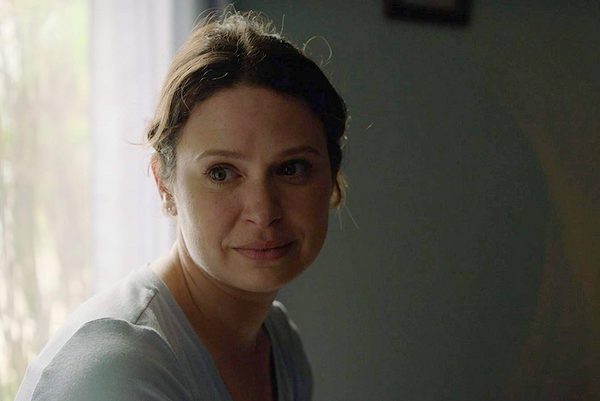
She trained at schools like RADA and Tisch,. Katie’s also the co-artistic director and co-founder of a brilliant theatre company in Los Angeles called IAMA, which she spearheads with huge amount of passion and vigor. But the character of Leroy is the heartbeat of the film and I thank the universe for our amazing casting director, Chad Darnell. His discovery of Elijah, just 13 years old in his first ever film role, was the one miracle we needed for the film to work. From his very first audition I could see that Elijah had a natural charisma and presence, which isn’t something that can be taught. He brought his own perspective and introverted interpretation to the part. He was a delight to work with, as was his incredibly supportive family who were with us each day.
indieactivity: Did you have a hand in writing the script?
Richard Raymond: It was all Curt Zacharias Jr. Obviously as filmmakers we develop the script closely with the writer — but it all initially comes from Curt’s brilliant imagination.
indieactivity: Why do you think the topic of the arts in education is so important to talk about in today’s society?
Richard Raymond: A Million Eyes reminds us of the importance of mentors in young children’s lives, especially those discovering their artistic voices. And to recognise the significance that arts education has on kids, especially those in underfunded communities who feel they don’t have any value. They do and in fact they have the most important voices. 80% of American public schools overall have no art or music teachers, due almost entirely to budget cuts by the administration.
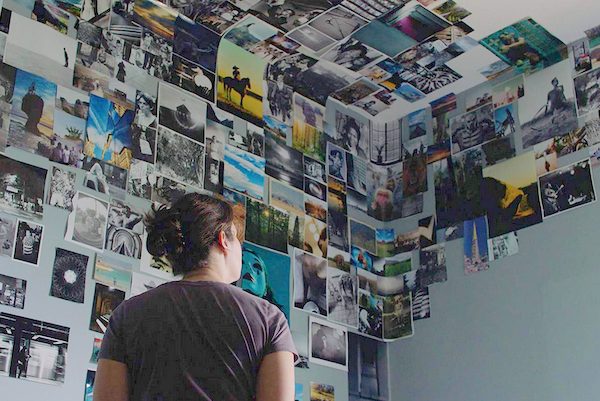
That’s unacceptable. Arts programs are the first to go because their impact is not measured by standardized tests. But the positive impact of the arts is absolutely self-evident to so many artists I know and in many respects, adolescent arts students achieve significantly more positive developmental outcomes than those who are not exposed to the arts.
indieactivity : Which scene (that made the cut) was the hardest to shoot?
Richard Raymond: The scene in the ruins. The crew had to first carry around 80 feet of track and grip equipment a mile through a dense forest just to get to set. It took many hours to set up on uneven ground that was also a historical heritage site. We had to be careful not to disturb anything. The sun was going down and I had very limited time to work with Elijah, as he was a minor. But our amazing crew rose to the occasion and we got it done. Then we had to carry everything back out of the forest in the night!
indieactivity: What worked better in this latest production that mightn’t have worked so well in the last one you did?
Richard Raymond: I loved how the score was created on this film. The music by Chris Hyson plays an integral part in the film. Unlike my last film, the score was written entirely to the script, months before we started filming. It’s something I’ve been keen to do for a while now. I felt that A Million Eyes needed a different approach then the trusted trope of using temp score in the edit, only to ask a composer to create something similar. I couldn’t have been more delighted with the end result, a truthful musical representation of that lonely search all artists go on. I played Chris’ music on set before scenes, sometimes just to myself on some headphones. It really helped us get into the emotional tone of the film, especially in the edit.
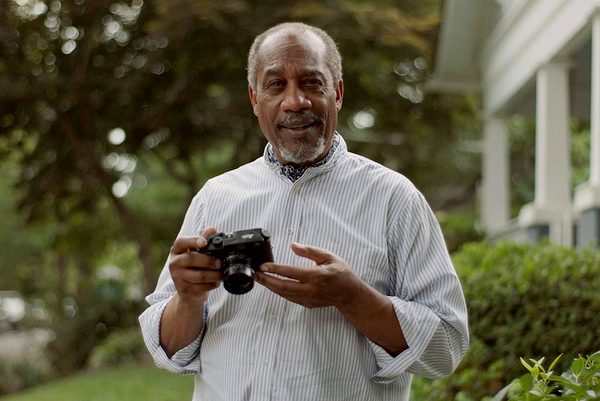
indieactivity: Is there anything about the independent filmmaking business that you struggle with?
Richard Raymond: I think like any filmmaker it comes down to that eternal struggle to get your projects financed. It really shouldn’t be as hard as it is — but that’s the nature of the beast of the film industry. Persevere we must.
indieactivity : Where do you think your strengths lie as a filmmaker?
Richard Raymond: Filmmaking is a collaborative effort, and I love embracing a talented team of diverse individuals who both support and challenge my vision. I’ve learnt to trust my intuition on set. The more I’ve done that the better the experience of making films has become.
indieactivity : How was the film financed?
Richard Raymond: Raising money for a short film is always going to be somewhat of a miracle but fortunately my wife, Nousha, is a relentless miracle-worker. She gathered together a group of individuals who all believed in the message of A Million Eyes and wanted to support us. They were spearheaded by some of the most brilliant women I’ve have the honor of knowing. People like Suzie Brown, Jen Beerman, Kate McCormack, Louise Griffiths, Tamar Tenenbaum, Ana VonBurg Martiny, Alexandra Roubeni and Cynthia Rose — to name only a few.
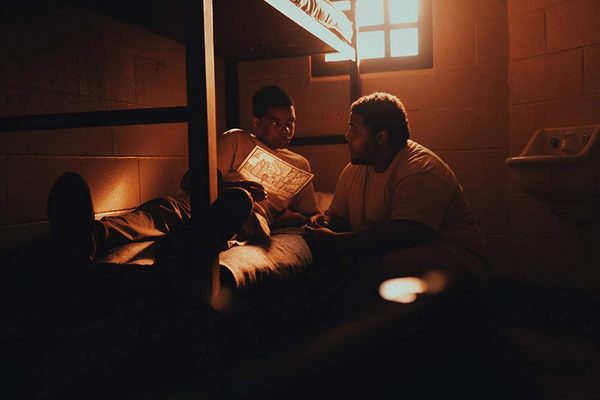
indieactivity: What do you hope audI hope audiences reflect on importance of mentors in young children’s lives, especially those discovering their own artistic voices. And also I hope it reminds us all of the significance that arts education can have on kids, especially in underfunded communities, and how we should celebrate the importance of often overlooked voices. I remember speaking to Joe Morton (who plays Fern) and for him, the film was about hope, growth, mentorship, and the legacy of artists, like Gordon Parks, who paved the way for today’s American artists of color.
indieactivity : What else have you got in the works?
Richard Raymond: I’m currently developing a feature film entitled, “One Thousand Paper Cranes”, with actress Evan Rachel Wood. The film will tell the well known true story of Sadako Sasaki, a 2-year-old girl living in Hiroshima when the atomic bomb was dropped on the city in 1945. She was later diagnosed with leukemia caused by exposure to radiation from the blast. She drew strength from a Japanese legend that, if she folded 1,000 paper cranes, she would be granted a wish, which in her case was to live.
indieactivity : Describe A Million Eyes in one word?
Richard Raymond: Muse.
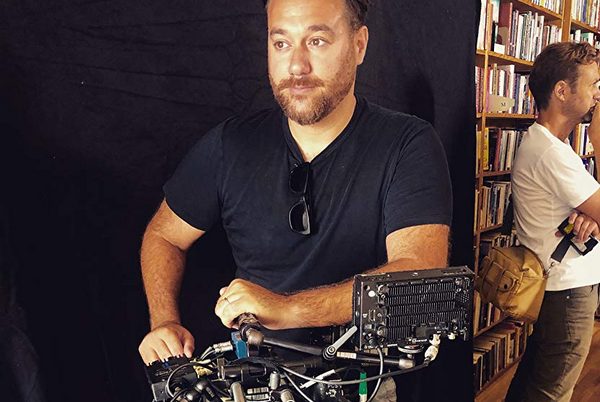
Tell us what you think of the new trailer for “A Million Eyes” What do you think of it? Genre? More genre? Lets have your comments below and/or on Facebook or Instagram! Or join me on Twitter @oladapobamidele
Follow Richard Raymond on Social Media
IMDb
Twitter
YouTube
Vimeo

